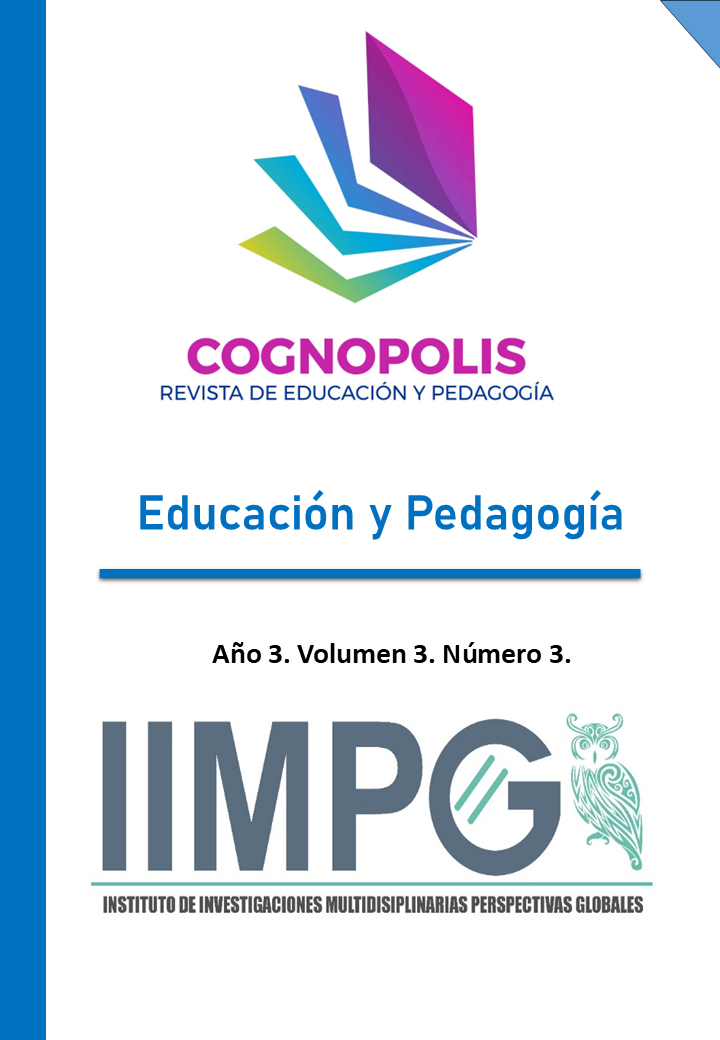Generative artificial intelligence in Ecuadorian education: Pedagogical transformation and cognitive Development [Inteligencia artificial generativa en educación ecuatoriana: Transformación pedagógica y desarrollo cognitivo]
DOI:
https://doi.org/10.62574/r06dpy41Keywords:
pedagogical transformation, cognitive development, educational technologyAbstract
The integration of generative artificial intelligence into the Ecuadorian education system represents an opportunity to revolutionise teaching methodologies and enhance student cognitive development. Through a systematic review of specialist literature published between 2023 and 2025, this study examines the potential impact of these emerging technologies, analysing the opportunities, challenges and implications of their implementation. The results show that generative AI can personalise learning experiences, stimulate critical thinking and facilitate student-centred pedagogical approaches. However, risks associated with excessive technological dependence and the need for appropriate regulatory frameworks are identified. The METE-IAG model (Ecuadorian Model for Educational Transformation through Generative Artificial Intelligence) is proposed, structured around five interrelated dimensions: pedagogical, technological, cognitive, organisational, and ethical. This framework suggests a gradual implementation that combines teacher training, adequate technological infrastructure, and coherent educational policies to maximise benefits while minimising potential risks.
Downloads
References
Bobula, M. (2024). Generative artificial intelligence (AI) in higher education: A comprehensive review of challenges, opportunities, and implications. Journal of Learning Development in Higher Education, (30). https://doi.org/10.47408/jldhe.vi30.1137
Bustard, J., & Ghisoiu, M. (2025). Revolutionising digital marketing education with generative artificial intelligence integration: An asynchronous approach. Proceedings, 114(1), 1. https://doi.org/10.3390/proceedings2025114001
Chaparro-Banegas, N., Mas-Tur, A., & Roig-Tierno, N. (2024). Challenging critical thinking in education: New paradigms of artificial intelligence. Cogent Education, 11(1). https://doi.org/10.1080/2331186X.2024.2437899
Ding, M., Dong, S., & Grewal, R. (2024). Generative AI and usage in marketing classroom. Customer Needs and Solutions, 11(5). https://doi.org/10.1007/s40547-024-00145-2
Farrelly, T., & Baker, N. (2023). Generative artificial intelligence: Implications and considerations for higher education practice. Education Sciences, 13(11), 1109. https://doi.org/10.3390/educsci13111109
Gerlich, M. (2025). AI tools in society: Impacts on cognitive offloading and the future of critical thinking. Societies, 15(1), 6. https://doi.org/10.3390/soc15010006
Gonsalves, C. (2024). Generative AI's impact on critical thinking: Revisiting Bloom's taxonomy. Journal of Marketing Education, 0(0). https://doi.org/10.1177/02734753241305980
Grewal, D., Satornino, C. B., Davenport, T., et al. (2025). How generative AI is shaping the future of marketing. Journal of the Academy of Marketing Science, 53(4), 702–722. https://doi.org/10.1007/s11747-024-01064-3
Guha, A., Grewal, D., & Atlas, S. (2023). Generative AI and marketing education: What the future holds. Journal of Marketing Education, 46(1), 6–17. https://doi.org/10.1177/02734753231215436
Kshetri, N., Dwivedi, Y. K., Davenport, T. H., & Panteli, N. (2024). Generative artificial intelligence in marketing: Applications, opportunities, challenges, and research agenda. International Journal of Information Management, 75, 102716. https://doi.org/10.1016/j.ijinfomgt.2023.102716
Narang, U., Sachdev, V., & Liu, R. (2025). When AI wears many hats: The role of generative artificial intelligence in marketing education. Journal of Public Policy & Marketing, 44(3), 473–489. https://doi.org/10.1177/07439156251328237
Patil, D. (2024). Generative artificial intelligence in marketing and advertising: Advancing personalization and optimizing consumer engagement strategies. SSRN. https://doi.org/10.2139/ssrn.5057404
Singh, P., & Huang, L. (2025). AI meets brainstorming: Enhancing creativity and collaboration in marketing education. Marketing Education Review, 1–9. https://doi.org/10.1080/10528008.2025.2501790
Vieriu, A. M., & Petrea, G. (2025). The impact of artificial intelligence (AI) on students' academic development. Education Sciences, 15(3), 343. https://doi.org/10.3390/educsci15030343
Zhai, C., Wibowo, S., & Li, L. D. (2024). The effects of over-reliance on AI dialogue systems on students' cognitive abilities: A systematic review. Smart Learning Environments, 11, 28. https://doi.org/10.1186/s40561-024-00316-7
Downloads
Published
Issue
Section
License
Copyright (c) 2025 Jorge Hamilton Leal-Cevallos , Luby Claudia Ramírez-Álava , Estrella del Rosario Loor-Burgos , Cecilia del Rocío Álava-Cevallos (Autor/a)

This work is licensed under a Creative Commons Attribution-NonCommercial-ShareAlike 4.0 International License.
This work is licensed under an international Creative Commons Attribution-NonCommercial-ShareAlike 4.0 licence.
CC BY-NC-SA: This licence allows re-users to distribute, remix, adapt and build upon the material in any medium or format for non-commercial purposes only, and only provided that the creator is attributed. If you remix, adapt or build upon the material, you must license the modified material under identical terms.











